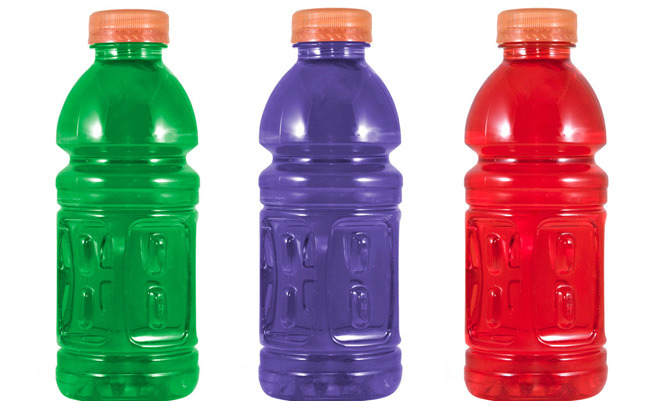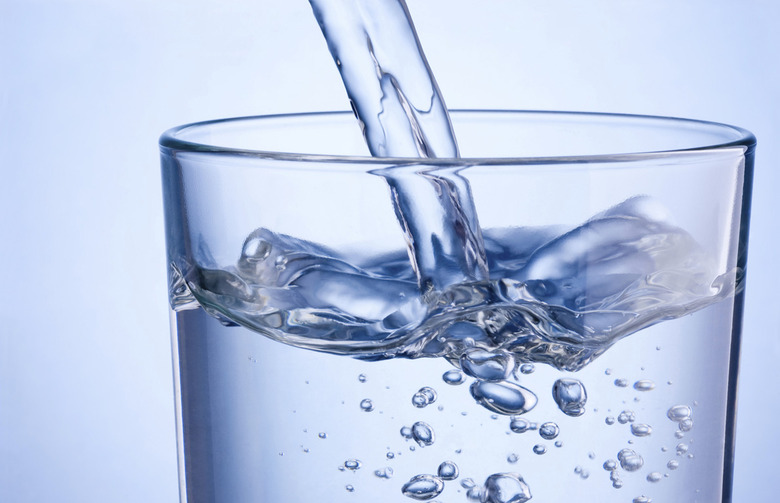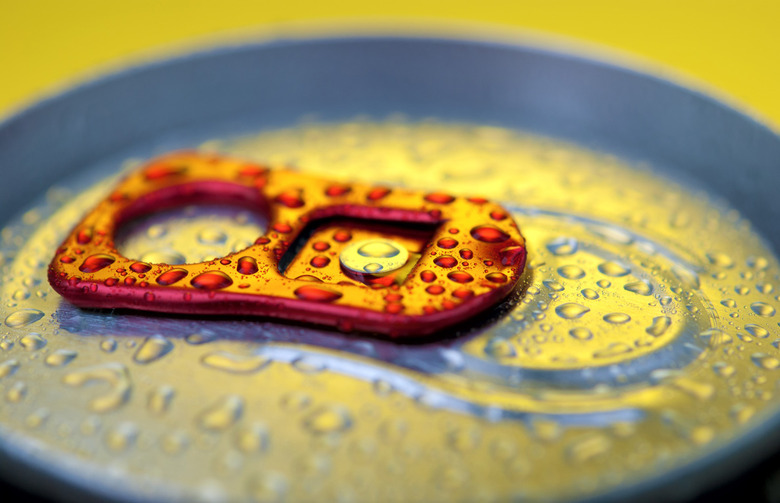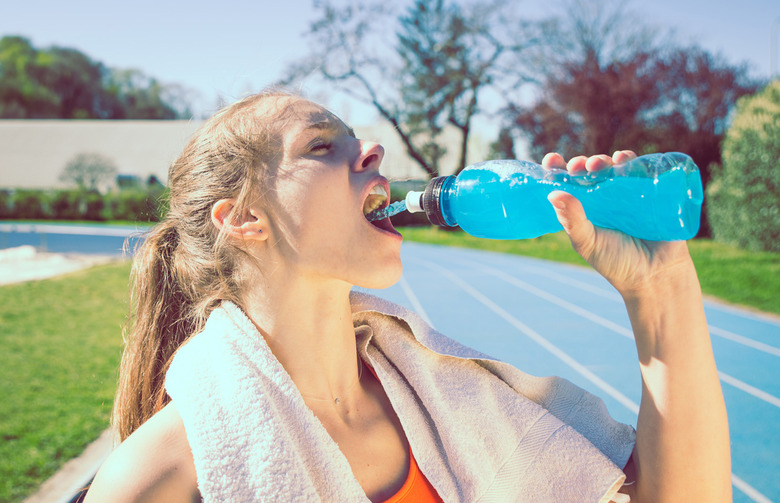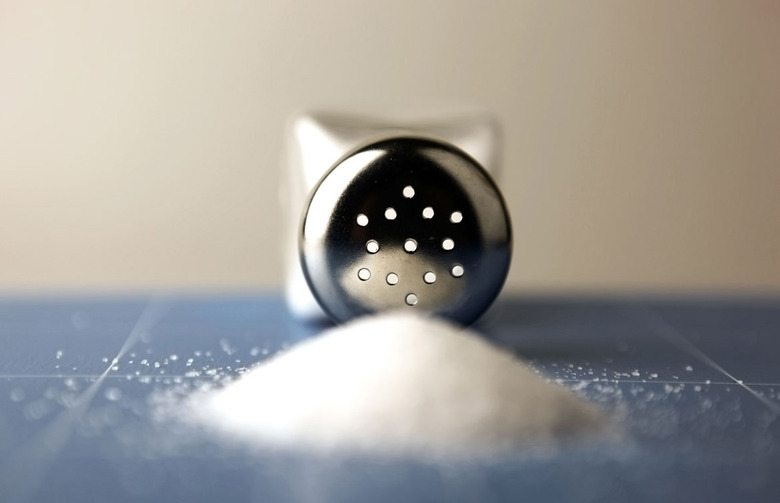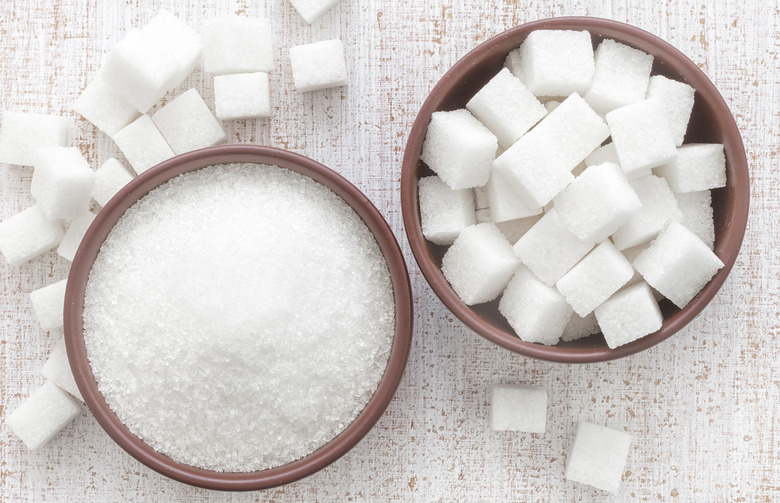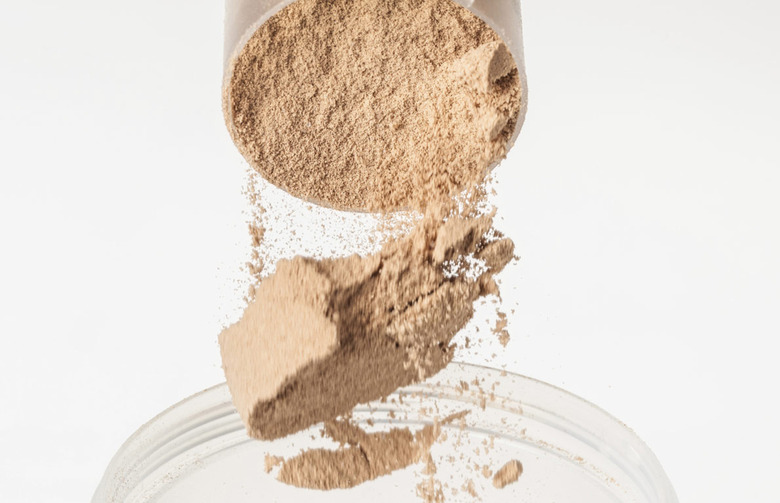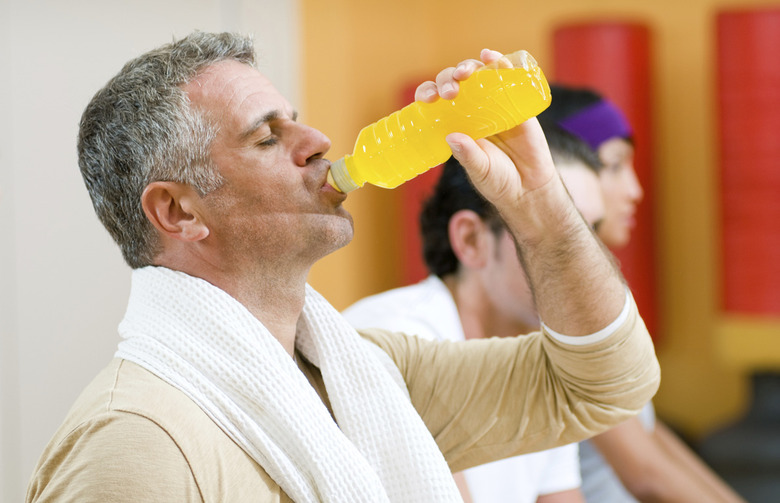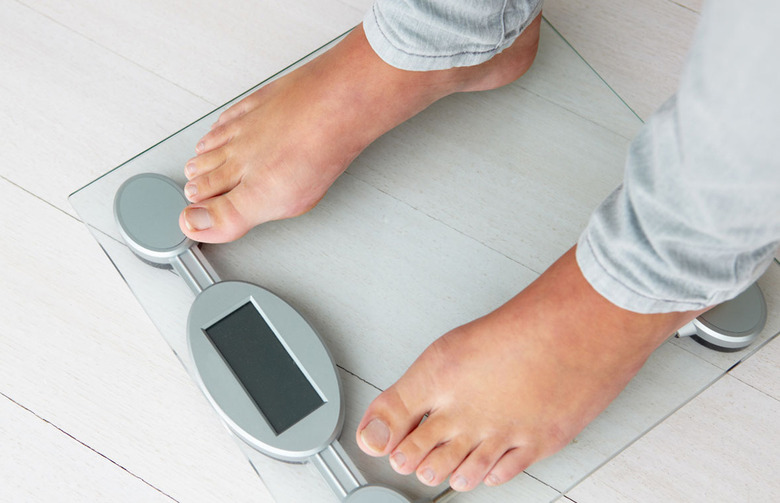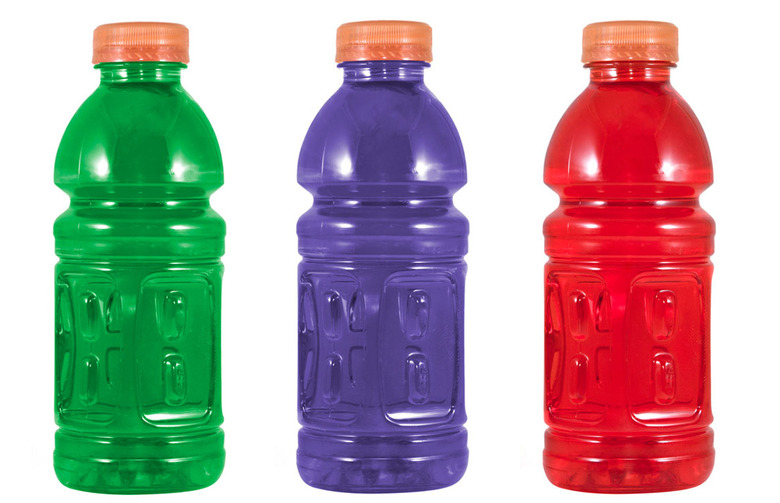10 Myths About Your Favorite Sports Drinks
Reaching for the nearest sports drink after your intense workout may seem like a great idea, but the fact of the matter is, you're not necessarily helping your body. In fact, some might argue that you're hurting your body more than you're helping it. The marketing behind sports drinks is full of myths — and we're here to bust them!
Take a look at our slideshow for some common myths about sports drinks.
They’re Better Than Water
Here's the deal: No matter what, water is the safest and most hydrating liquid that you can consume. Your body is made of mostly water, so how can there be anything out there that's better? It contains no added calories or chemicals. The best thing about water is that it's cheap — or free if you carry your own water bottle. There's simply no competition.
They Don’t Contain Harmful Additives
Studies have shown that some sports drinks have just as many additives as soda. In fact, the acid in sports drinks can wear down your teeth, destroying the enamel, even more than soda can, and the damage is irreversible.
They Give You Electrolytes
Sports drinks do contain electrolytes, but the sugar content often cancels out their benefits. In order to gain the electrolytes you need, all you have to do is eat a healthy diet. Electrolytes in sports drinks don't have enough of a positive effect to recompense for the negative effects they wreak on your body. It's just not worth it.
They Give You Energy
With all of the added sugar that they contain, sports drinks raise blood sugar levels at a rapid rate. You may feel like you're super-energized right after consuming one, but what you're experiencing is merely a sugar high. In 30 minutes or so, you'll be ready for a nap.
They Have No Added Sodium
They Have No Sugar
On the contrary to what most believe, one 32-ounce bottle of Powerade or Gatorade can contain 200 calories and a hefty 52.5 grams of sugar — not as much as Coke, but pretty hefty. Drinking these on a regular basis will add calories to your diet, essentially canceling out your workout.
They Have Protein
One thing athletes care about is building muscle. However, turning to sports drinks to do so is not the answer. If you take a look at the nutrition labels, you'll see that most sports drinks contain zero grams of protein.
They Hydrate You
For athletes, hydration is important because they're losing a lot of water when they sweat. We've already covered how sports drinks don't quench your thirst, but we're also here to tell you that they don't hydrate you either. Any drink that is high in sugar is most likely dehydrating your body. If you're looking to stay hydrated, it's best to stick to water.
They Help You Lose Weight
Claiming that sports drinks help you lose weight is comparable to saying juice drinks or soda do the same. If there's a lot of added sugar in a product or if it's high in calories, there's a good chance it's not helping you lose weight. In fact, it may be doing the opposite.
They Quench Your Thirst
Even if a sports drink sounds appealing when you're thirsty, it won't actually quench your thirst — the effect is all mental. A study in the Journal of Applied Physiology found that the taste of the drinks, a result of salt and other ingredients, causes people to drink more of them. In reality, you're just consuming extra calories and sugar.
